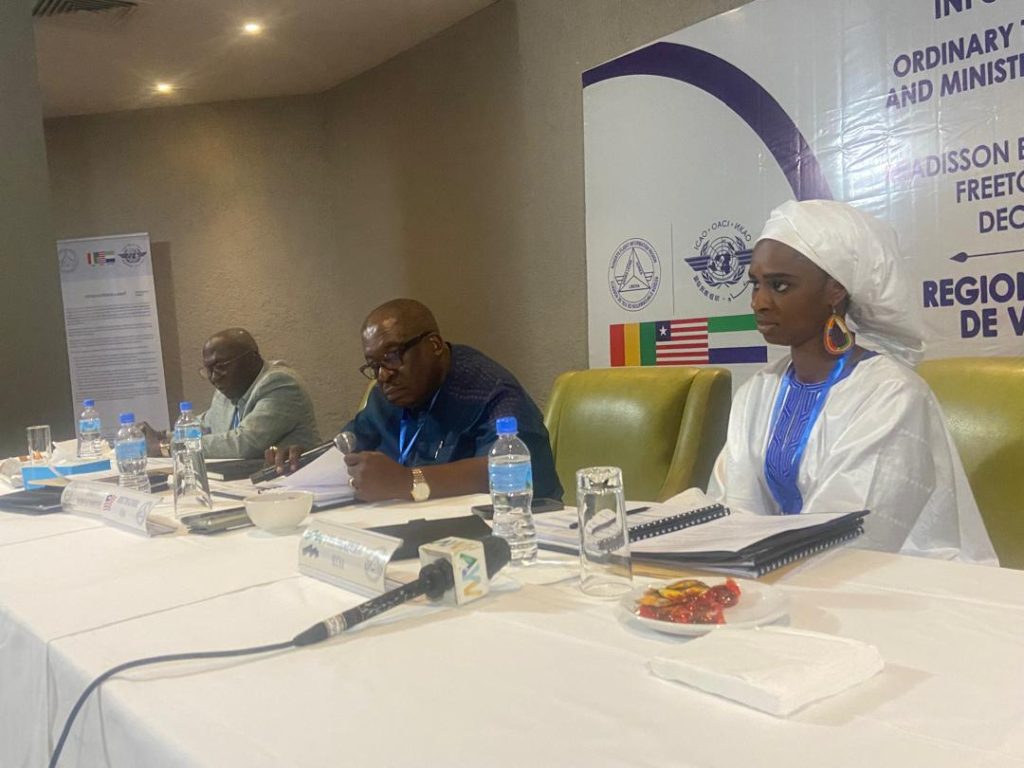By Alhaji Haruna Sani

The Roberts Flight Information Region (Roberts FIR) commences its two-day Ordinary Technical Committee and Ministerial Council Meeting on December 4, 2024, at the Radisson Blu Mammy Yoko Hotel, Freetown.
The gathering brought together aviation authorities from Guinea, Liberia, and Sierra Leone to address critical issues concerning the progress and strategic direction of the organization.
In his welcome remarks, Julius Denis, Director General of the Liberia Civil Aviation Authority, emphasized the importance of the meeting in reviewing the 2023 and 2024 activity reports and discussing the draft 2025 budget.
He highlighted the transition to a new executive leadership team in April 2024, which has prioritized developing a five-year strategic plan.
“This strategic plan focuses on upgrading systems, adopting new technologies, and enhancing service quality while ensuring compliance with international standards,” Denis stated.
He also referenced the 14th Air Navigation Conference held in Canada, which focused on performance improvement and sustainability, aligning the RFIR’s objectives with global aviation advancements.
Sekou Oumar Thiam, Director General of the Guinea Civil Aviation Authority, expressed gratitude for the collaborative efforts of all participating delegations. He noted that critical issues discussed at the meeting would be presented to the Ministerial Council for resolutions.
Director General of the Sierra Leone Civil Aviation Authority, Musayeroh Barrie ,on behalf of the Minister of Transport and Aviation, reaffirmed Sierra Leone’s commitment to the RFIR’s objectives since its inception in 1975. “Sierra Leone remains dedicated to ensuring the safety and development of our shared airspace through collective collaboration,” she stated.
She also thanked the Guinean and Liberian aviation authorities for their technical and administrative contributions to the RFIR’s ongoing efforts.
The RFIR reiterated its dedication to implementing robust safety management systems (SMS) and promoting a strong safety culture across all operations.
Key commitments include, establishing a dedicated safety department to oversee SMS implementation, proactively addressing safety risks through data-driven, system-level decisions.
Fostering open reporting of safety concerns to encourage transparency and cooperation among stakeholders.
The organization also pledged to maintain a unified Quality Management System (QMS) to ensure the integrity and consistency of aeronautical and meteorological data, meeting the highest international standards of aviation safety and operational effectiveness.
As the RFIR moves forward, the technical committee and ministerial council aim to strengthen the region’s aviation framework, enhance operational efficiency, and ensure compliance with global standards.
The collaboration among Guinea, Liberia, and Sierra Leone underscores the shared commitment to achieving the highest levels of safety and operational excellence in regional airspace management.
The meeting marks a pivotal step in aligning the RFIR’s vision with international best practices, ensuring sustainable growth and resilience in the aviation sector.


